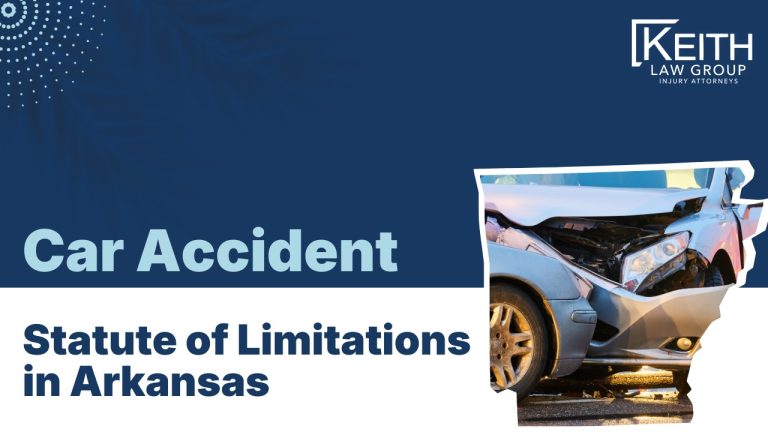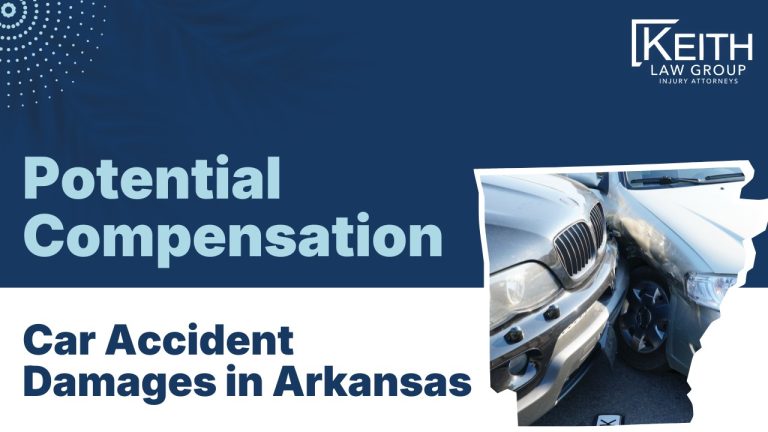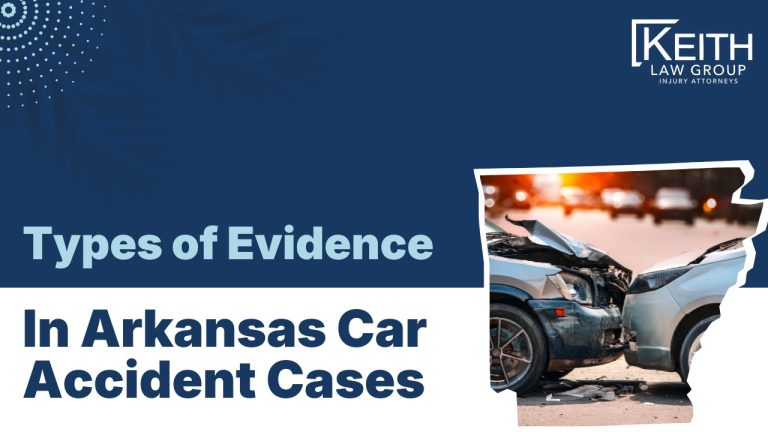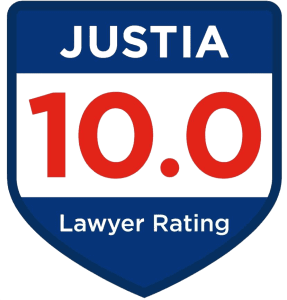- Published:
- Last Updated: February 17th, 2026

Attorney Sean T. Keith has been a personal injury lawyer for 30+ years, a nationally recognized Top 100 Trial Lawyer, and top car accident lawyer & motor vehicle accident lawyer in Arkansas.
Legally Reviewed
This article has been written and reviewed for legal accuracy and clarity by the team of writers and attorneys at Keith Law Group and is as accurate as possible. This content should not be taken as legal advice from an attorney. If you would like to learn more about our owner and experienced injury lawyer, Sean T. Keith, you can do so here.
Fact-Checked
Keith Law Group does everything possible to make sure the information in this article is up to date and accurate. If you need specific legal advice about your case, contact us. This article should not be taken as advice from an attorney.
Sean Keith's Accollades & Practice Areas He Specializes In
- Over $20 Million recovered in Medical Device Injury Lawsuits.
- Over $13 Million recovered in Car Accident Lawsuits and other Motor Vehicle Accident Lawsuits.
- Over $100 Million recovered in total on behalf of clients.
- Sean represents clients in cases involving personal injuries, car accidents, motorcycle accidents, truck accidents, wrongful death, slip and falls, nursing home abuse cases, nursing home elopement cases, and more.
Intro to Car Accident Compensation
Did you know that understanding the car accident compensation process in Arkansas, including injury claims and automobile insurance, can significantly impact your financial recovery after a crash?
That’s right!
Whether it’s vehicle accidents or auto accidents in the Natural State, knowing how the system works is crucial for car accident victims, and working with a personal injury attorney can help you navigate collision damage claims.
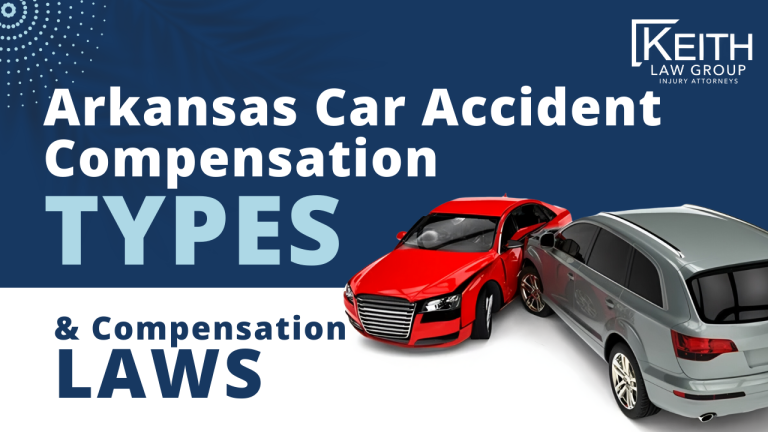
Arkansas laws play a significant role in determining the outcome of vehicle accidents and injury claims.
So, whether you’ve been involved in a traffic accident or know someone who has, this guide will help you navigate the complicated world of car accident compensation.
Stay tuned as we delve into essential information for crash victims seeking justice and fair compensation for their damages, with the assistance of a personal injury attorney and understanding the role of automobile insurance.
Table of Contents
Determining Eligibility for Compensation in Arkansas
Establishing Fault and Negligence
To be eligible for car accident compensation in Arkansas, it’s crucial to establish fault and negligence in vehicle accidents.
Here’s how to address vehicle damage, financial responsibility, and property damage claims:
- Determine who caused the accident
- Prove that the at-fault party was negligent
- Show that their negligence directly led to your injuries or damages in the car accident case, as this is crucial for car accident claims and securing compensation for car accident victims involved in an auto accident.
Keep in mind:
- Fault can be shared among multiple parties
- Negligence occurs when someone fails to exercise reasonable care on the road, leading to accidents, auto accident incidents, accident victims, and vehicle damage.
Comparative Fault System in Arkansas
Arkansas follows a comparative fault system, which means:
- In a car accident claim, your compensation from car accident settlements will be reduced by your percentage of fault due to contributory negligence, affecting your financial responsibility.
- You can still recover damages for car accidents even if you’re partially at fault, as long as you’re less than 50% responsible for the accident. This applies to vehicle repair claims as well.
For example, in typical car accident settlement amounts, if you’re found to be 30% at fault in a car accident claim and your total damages are $10,000, you’ll receive $7,000 (70% of $10,000) as calculated by car accident settlement calculators.
Consult a vehicle accident attorney for further assistance.
Gathering Evidence for Eligibility
To prove eligibility for vehicle accident compensation in Arkansas, gather evidence like:
- Police reports: Official documentation of the accident details
- Witness statements: Testimonies from those who saw the automobile incident occur —
- Medical records: Proof of your injuries and treatments received
- Photos or videos: Visual evidence of the car accident settlement, crash scene, vehicle damage repair, economic damages, and special damages
- Expert testimony: Statements from professionals like mechanics or doctors explaining how negligence in a vehicle accident led to your damages, influencing your car accident settlement, repair costs, and interactions with the insurance company.
By following these guidelines and understanding Arkansas’ comparative fault system, you’ll have a better chance at receiving fair vehicle accident compensation from the insurance company, covering your economic damages according to your policy.
Understanding Different Types of Damages and Potential Compensation
Economic Damages
Economic damages, also known as special damages, refer to the tangible monetary losses suffered by a person due to a vehicle accident.
These types of damages are usually easier to calculate because they have a specific dollar amount attached to them.
Some common examples of economic damages include:
- Medical expenses: This covers any costs associated with treating injuries resulting from the vehicle accident. It can include hospital bills, medication, physical therapy, and ongoing medical care. These economic damages are often covered by the insurance company through their policy.
- Lost wages: If you’re unable to work due to your injuries from a vehicle accident, you may be entitled to compensation for the income you would have earned during that time. This could be part of your car accident settlement with the insurance company, depending on your policy.
- Property damage: This refers to any damage sustained by your vehicle or other personal property during the accident, which may involve your insurance company, policy, settlement, and a potential multiplier.
To ensure maximum compensation for these losses in a car accident settlement, it’s crucial to keep detailed records of all vehicle accident expenses incurred and gather supporting documentation like receipts and invoices from the company and policy providers.
Non-Economic Damages
Non-economic damages are more challenging to quantify since they involve intangible losses that don’t have a specific monetary value.
Despite this difficulty, these damages play an essential role in compensating victims for their pain and suffering caused by the vehicle accident.
Examples of non-economic damages in a company settlement include using a multiplier to estimate the value of these losses.
- Pain and suffering: This accounts for any physical discomfort or emotional distress experienced as a result of the vehicle accident in Arkansas, which may be considered in a settlement with the company responsible.
- Emotional distress: Victims in Arkansas may suffer from anxiety, depression, or post-traumatic stress disorder (PTSD) following a vehicle accident. Compensation for emotional distress, often included in a settlement, aims to account for these mental health struggles and may involve the responsible company.
- Loss of consortium: In some cases, company vehicle accidents in Arkansas can lead to strained relationships or loss of companionship between spouses or family members, resulting in a settlement claim.
Since there’s no set formula for calculating non-economic damages in a car accident settlement, it’s crucial to work with an experienced Arkansas vehicle accident attorney who can help determine fair compensation based on your unique circumstances and the company involved.
Punitive Damages
Punitive damages are awarded in rare cases where reckless behavior or gross negligence involving a vehicle contributed to the accident.
These damages aren’t meant to compensate victims for their losses but rather to punish the at-fault party, such as a company, and deter similar behavior in the future.
Examples of conduct that may warrant punitive damages include:
- Drunk driving
- Street racing
- Intentionally causing an accident
Keep in mind that each state, such as Arkansas, has its own laws regarding punitive damages in car accident settlements, and some may have caps on the amount that can be awarded for vehicle accidents involving a company.
Calculating Car Accident Compensation Amounts in Arkansas
Assessing Severity of Injuries
When determining vehicle accident compensation amounts in Arkansas, one crucial factor to consider is the severity of injuries sustained.
The impact on the victim’s quality of life plays a significant role in calculating the appropriate amount.
Some factors to assess include the company responsible for the accident and the extent of the damages caused:
- Physical pain and suffering
- Emotional distress
- Loss of enjoyment in life
- Permanent disability or disfigurement
It’s essential to evaluate how these factors influence a person’s daily activities, work capabilities, company relationships, and interactions with others, especially in Arkansas where vehicle usage and car accident settlements may be involved.
Evaluating Long-Term Financial Consequences
Another critical aspect when calculating vehicle accident compensation is evaluating the long-term financial consequences resulting from the accident.
These may include:
- Medical expenses:
- Emergency care costs
- Ongoing treatment and therapy
- Future medical needs related to the injury
- Lost wages:
- Time taken off work for recovery
- Reduced earning capacity due to disability
- Property damage:
- Repair or replacement costs for damaged vehicles or other property in Arkansas company
- Miscellaneous expenses:
- Costs associated with hiring a Arkansas company for household chores or personal care needs during recovery, including vehicle expenses
By considering all these factors, you can estimate the overall financial burden faced by the vehicle victim in Arkansas and determine an appropriate compensation amount from the company.
Factoring in Comparative Fault Percentages
Arkansas follows a comparative fault system for vehicle accidents.
This means that if both parties involved in an accident are partially at fault, their respective compensation amounts from the company will be reduced based on their percentage of fault.
This is also applicable in Arkansas.
For example, if a vehicle driver is found 30% at fault for an accident and has $100,000 worth of damages, they would only receive $70,000 (70% of their total damages) as compensation from the company.
To accurately calculate car accident compensation amounts in Arkansas:
- Determine each party’s percentage of fault.
- Multiply the total vehicle damages by the victim’s percentage of fault for the company.
- Subtract this amount from the total vehicle damages to obtain the final compensation amount from the company.
Arkansas Insurance Requirements and Laws in Different States
Mandatory Liability Insurance Coverage Minimums
Arkansas, like most states in the U.S., requires drivers to have a minimum amount of automobile insurance coverage.
The mandatory vehicle liability insurance coverage minimums for Arkansas are provided by insurance companies:
- $25,000 per person for bodily injury
- $50,000 total per accident for bodily injury
- $25,000 per accident for property damage
These limits are designed to ensure that drivers can cover the costs of medical bills and property damage in case of a vehicle accident.
However, these minimums might not be enough to fully compensate victims in some cases, leaving the company responsible for additional costs.
It’s essential to know your state’s requirements to avoid penalties and ensure adequate protection.
No-Fault vs At-Fault Insurance Systems Comparison
There are two main types of car accident compensation systems in the United States: no-fault and at-fault.
Here’s how they differ:
No-Fault System
- Drivers file claims with their own insurance company regardless of who caused the accident
- Typically covers medical bills and lost wages up to policy limits
- Limits the ability to sue other drivers for additional damages
- Examples of no-fault states include Florida and Michigan
At-Fault System
- The driver who caused the accident is responsible for compensating victims
- Victims file claims with the at-fault driver’s insurance company or through their own uninsured/underinsured motorist protection (if available)
- Allows more flexibility in seeking compensation through lawsuits if necessary
- Examples of at-fault states include Arkansas and California
Knowing which system your state uses can help you better understand your rights after a car accident.
Uninsured/Underinsured Motorist Protection Options
Uninsured and underinsured motorist protection is an optional insurance coverage that can provide additional compensation in case the at-fault driver lacks adequate insurance or has none at all.
Some states, like Arkansas, require drivers to have uninsured motorist coverage, while others leave it as an option.
Benefits of having uninsured/underinsured motorist protection:
- Covers medical bills and property damage if the at-fault driver’s policy limits are not enough
- Provides compensation if the at-fault driver has no insurance
- Can cover hit-and-run accidents where the responsible party cannot be identified
It’s essential to review your insurance policy and consider adding uninsured/underinsured motorist protection for extra peace of mind.
Arkansas Statute of Limitations and Settlement Averages
Factors Influencing Settlement Amounts
Several factors can influence the settlement amount in an Arkansas car accident compensation claim:
- Severity of injuries: More severe injuries often result in higher settlement amounts.
- Medical expenses: The cost of medical treatment and ongoing care can impact the settlement offer.
- Lost wages: If you’ve missed work due to your injuries, this could factor into your fair settlement.
- Pain and suffering: Emotional distress and decreased quality of life may also be considered in determining a fair settlement amount.
- Fault: Arkansas uses a modified comparative fault system, meaning that if you’re partially at fault for the accident, it could reduce your potential compensation.
Importance of Timely Legal Action
Taking timely legal action after an Arkansas car accident is crucial for several reasons:
- Preserving evidence: As time passes, important evidence may be lost or destroyed.
- Witness testimony: Witnesses’ memories may fade over time, making their statements less reliable.
- Negotiating with insurance companies: Insurance companies might try to settle quickly and for less than what you deserve; having an attorney involved early on can help protect your rights.
To increase your chances of receiving a fair settlement offer after an Arkansas car accident:
- Seek medical attention: Get checked out by a healthcare professional as soon as possible after the accident.
- Document everything: Take photos of the accident scene, your injuries, and any property damage. Keep records of all medical treatment and expenses.
- Consult with an attorney: An experienced personal injury attorney can help you navigate the legal process and negotiate with insurance companies on your behalf.
Choosing the Best Arkansas Accident Attorney
Experience with Car Accident Cases
Selecting a car accident attorney in Arkansas who has extensive experience handling similar cases is crucial.
An experienced attorney will understand the nuances of car accident cases and can help you navigate the complex legal process.
Look for a lawyer with:
- A proven track record in car accident cases
- Knowledge of state-specific laws and regulations
- A deep understanding of personal injury law, insurance policies, and medical treatment
Track Record of Successful Settlements
A skilled attorney should have a strong history of successful settlements and verdicts for their clients.
This demonstrates their ability to negotiate effectively with insurance companies and other parties involved in your case.
When researching potential attorneys, consider:
- Their success rate in obtaining favorable outcomes for clients
- The average amount they’ve secured in settlements or verdicts
- Any notable awards or recognitions within the legal community
Communication Skills and Client Satisfaction
Your relationship with your car accident attorney is essential to achieving a successful outcome.
It’s important to find an attorney who prioritizes open communication and client satisfaction.
Key factors to consider include:
- Responsiveness: Does the lawyer or law firm respond promptly to calls, emails, or inquiries?
- Empathy: Do they genuinely care about your well-being and understand your needs as an accident victim?
- Transparency: Are they upfront about fees, case progress, and potential outcomes?
Steps to Finding the Right Attorney for Your Case
Finding the Right Attorney for Your Case in Arkansas
By following these steps, you can find a car accident attorney in Arkansas who has the experience, track record, and communication skills necessary to build a strong case on your behalf.
Here are a list of steps to finding the right attorney for your case in Arkansas:
- Research local law firms that specialize in personal injury cases.
- Read online reviews from previous clients to gauge satisfaction levels.
- Schedule free consultations with at least three different attorneys.
- Ask each attorney about their experience handling car accident cases similar to yours.
- Assess their communication style during the consultation – do they listen attentively? Are they easy to talk to?
- Inquire about their track record of successful settlements or verdicts.
- Discuss their fee structure and any potential costs associated with your case.
- Consider the overall impression each attorney leaves – do you feel confident in their abilities? Can you trust them to handle your case effectively?
Remember, it’s crucial to choose an attorney who will prioritize your needs as an accident victim and work tirelessly to secure the compensation you deserve.
Navigating Car Accident Compensation: Arkansas Settlements
In summary, determining eligibility for car accident compensation in Arkansas involves understanding different types of damages and potential compensation.
It’s essential to calculate the appropriate compensation amounts based on the specific circumstances of your accident.
Stay informed about Arkansas insurance requirements and laws, as they may differ from other states.
Keep in mind the Arkansas statute of limitations when filing a claim or pursuing a settlement.
On average, settlements can vary greatly depending on factors such as severity of injuries, property damage, and liability.
To ensure you receive fair compensation for your losses, it’s crucial to choose the best Arkansas accident attorney with experience in handling car accident cases.
Don’t hesitate to take action – reach out to an experienced Arkansas accident attorney today to discuss your case and get started on securing the compensation you deserve.
Frequently Asked Questions
-
You may be eligible for car accident compensation if you’ve suffered physical injuries, property damage, or emotional distress due to a car accident caused by another party’s negligence.
An experienced attorney can help determine your eligibility based on the specifics of your case.
-
Damages awarded in car accident cases can include medical expenses, lost wages, pain and suffering, property damage, loss of consortium (companionship), and punitive damages (in extreme cases).
-
Compensation amounts are calculated based on factors like medical bills, lost income due to missed workdays or reduced earning capacity, pain and suffering endured by victims as well as property damages incurred during the incident.
-
The statute of limitations for filing a personal injury claim related to a car accident in Arkansas is three years from the date of the accident.
If you fail to file your claim within this time frame, you may lose your right to seek compensation.
-
An experienced Arkansas accident attorney can help you navigate the complex legal process, gather evidence to support your claim, negotiate with insurance companies, and represent you in court if necessary.
They will work tirelessly to ensure that you receive fair compensation for your injuries and losses.
All Posts for the Car Accident Lawsuit Legal Guide
Practice Areas
You pay
Nothing
unless we win
Do You Have A Case?
Recent Legal Posts & Articles
Recent Legal Guides

Choose Us For Your Personal Injury Case
- Available 24/7
- No Upfront Fees
- Free Case Evaluation
- No Fees Unless We Win!



